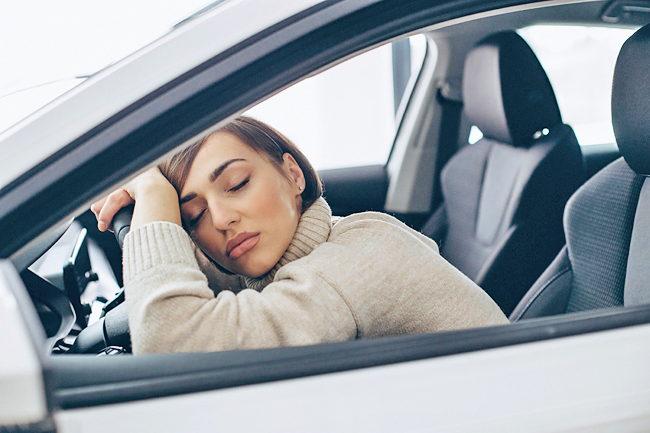THE STAR/DPA – If you find yourself yawning at the wheel, sit up and pay attention because even the briefest microsleep can cause a fatal crash, and hundreds of people die this way every year.
The term microsleep refers to very short periods of sleep that can be measured in seconds, rather than minutes or hours, sleep experts said.
Closing your eyes for just two seconds could leave you driving blind for 56 metres if you are moving at 100kph, said German safety inspection agency TUV.
Watch out for the key warning signs, say, if your eyes are drifting, you startle suddenly and your movements are jerky, or your head is moving involuntarily.
These are all signs that you have already had a microsleep.
Pay attention to your body’s signals to avoid getting to that point. Other warning signs include if you find yourself yawning frequently, rubbing your eyes, shivering suddenly or feeling a strong desire to move. You may start wriggling around in your seat, for example.

That is the latest point at which you should head for the nearest place you can pull over or park and take a short nap, say experts.
“Anything less only cures your symptoms,” said Eberhard Lang of the safety agency TUV. Only continue after taking a break of 10 to 20 minutes.
If you’re on a longer journey, it helps to plan your first break after two hours at the wheel at the latest.
The risk of microsleep is particularly high when you are driving at the wrong time for your body clock. People tend to dip, biologically speaking, hitting a low between the hours of 2am and 5am and at around 2pm.
But that varies from one person to the next, so it helps to understand your own particular rhythms and stay off the road when you tend to feel tired, or take precautions, said the German Traffic Safety Council (DVR).
Some people feel more tired in the evenings, while others take longer to wake up in the mornings.
Early birds who can usually get out of bed quickly, feeling awake and alert straight away, tend to feel more sleepy in the afternoon and evening. They should take a walk in the afternoon to get some fresh air before starting their journey home in the car.
Night owls, on the other hand, tend to feel sleep-deprived in the morning, but feel more awake in the evening. If you’re not a morning person, be sure to leave yourself plenty of time in the morning to wake up properly and feel sharp and alert by the time you step into the car.
Commuters are also at risk of microsleeps, having to get behind the wheel just after they wake up in the morning, and again at the end of a long day at work: Probably the worst times to drive when it comes to alertness and concentration levels.
Statistics from Germany show that the majority of accidents resulting from fatigue take place between 6am and 8am, and between 2am and 4pm, the DVR said.
In the United States alone, at least 600 people die every year due to drowsy driving, according to estimates. Whatever time of day you are affected, tiredness is a problem to take very seriously.
When we are very tired, not only does our concentration decrease, but also our ability to react.
Bear in mind also that drivers tend to overestimate their abilities in general.
If you find you are often tired at the wheel, consider joining a car-sharing scheme. That way, if your energy or attention span seems to be flagging, you can let someone else drive instead.
Public transport may also be the safest option, depending on where you live.






